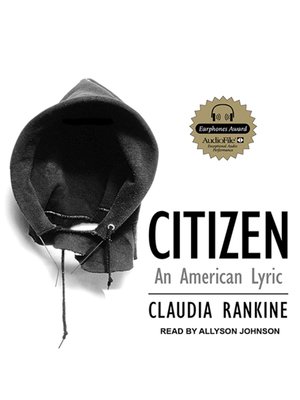


We are both challenging Schlosser for leaving out a discussion of microaggression and add to his claim by analyzing microaggression alongside a conception of citizenship as injury.Ĭlaudia Rankine’s Citizen: An American Lyric (2014) compiles instances of microaggression to communicate the damage they cause.

We discuss the ways microaggression is closely linked to citizenship and injury. However, Schlosser places microaggression itself in the background of the discussion. In essay, image, and poetry, Citizen is a powerful testament to the individual and collective effects of racism in our contemporary, often named "post-race" society.In this paper we discuss a conception of citizenship as injury, which is put forth by Joel Schlosser in “A Poetics of American Citizenship: Blackness, Injury, and Claudia Rankine’s Citizen.” Schlosser explains that Claudia Rankine’s Citizen presents a view of African American citizenship as being characterized by injury as a result of racism. Our addressability is tied to the state of our belonging, Rankine argues, as are our assumptions and expectations of citizenship.

The accumulative stresses come to bear on a person's ability to speak, perform, and stay alive. Some of these encounters are slights, seeming slips of the tongue, and some are intentional offensives in the classroom, at the supermarket, at home, on the tennis court with Serena Williams and the soccer field with Zinedine Zidane, online, on TV-everywhere, all the time. Winner of the National Book Critics Circle Award in Poetryįinalist for the National Book Critics Circle Award in CriticismĪ provocative meditation on race, Claudia Rankine's long-awaited follow up to her groundbreaking book Don't Let Me Be Lonely: An American Lyric.Ĭlaudia Rankine's bold new book recounts mounting racial aggressions in ongoing encounters in twenty-first-century daily life and in the media. Finalist for the National Book Award in Poetry


 0 kommentar(er)
0 kommentar(er)
